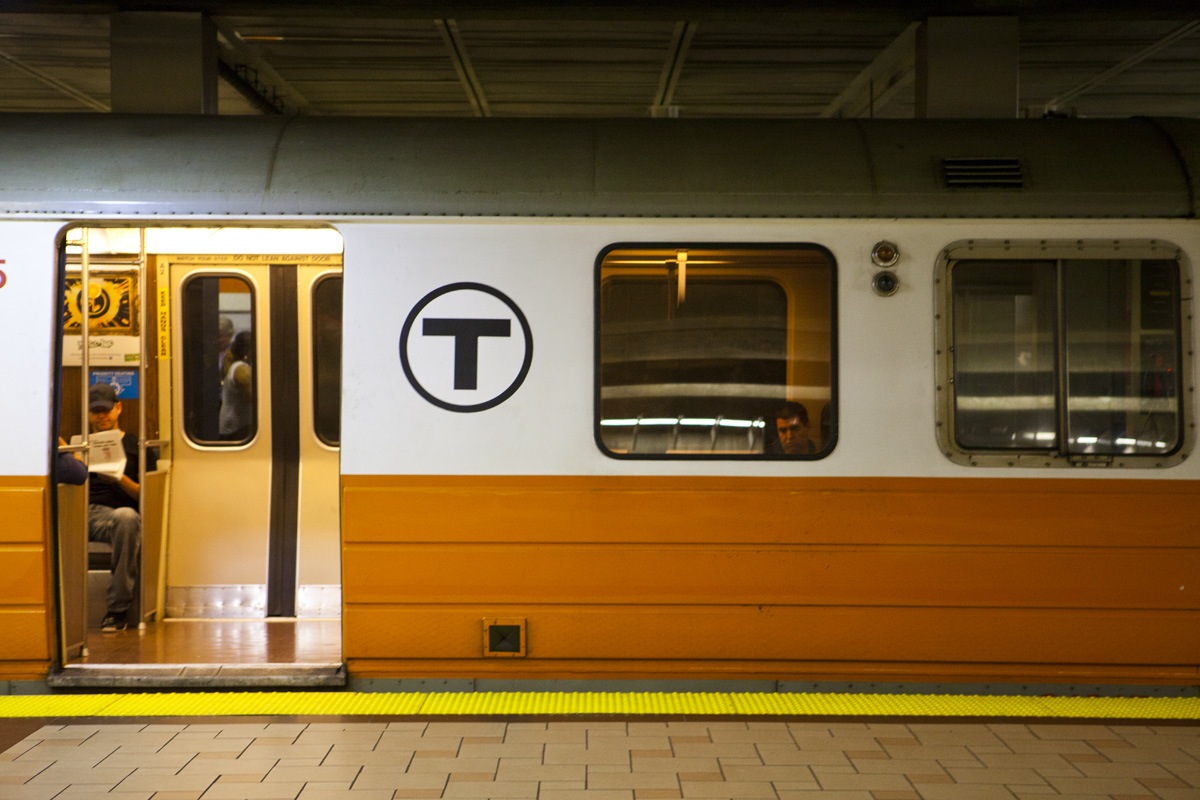Governor Patrick Wants a Chinese Company to Build New MBTA Train Cars
The MBTA’s rotted, rusted, and rickety Orange and Red Line train cars are one stop closer to being replaced.
On Tuesday, Governor Deval Patrick held a press conference in Springfield, where he discussed the state’s pending plan to enter into a contract with a Chinese manufacturing company to swap out the entire fleet of 152 Orange Line cars and 132 Red Line cars, giving riders more space and reliable transportation during their daily commutes.
He also revealed that, once the contract is executed, the vehicles will be built right here in Massachusetts, at a 150,000-square-foot facility to be built by the company.
According to the MassDOT Board’s agenda posted on the MBTA’s website, officials are expected to take up the matter of the contract during their regularly scheduled meeting at the State Transportation Building on Wednesday.
Details of the event state that the board will vote on whether or not to approve a deal with CNR MA Corporation, which is described as a joint venture of China CNR Corporation Limited and CNR Changchun Railway Vehicles Co., Ltd., for the amount of $566.6 million.
The purchase plans—and promise to build the vehicles in Massachusetts—were first announced in October 2013, when Patrick met with the Greater Boston Chamber of Commerce.
A total of six companies later came forward and submitted bids to take on the manufacturing project. Four emerged as top contenders, but CNR MA had the lowest bid.
A report released a year after Patrick announced the state’s intentions to revamp the train cars revealed that the project would offer riders some significant upgrades. Officials said the new cars will feature additional seating, wider and electrically operated doors, LED lighting, modern HVAC systems, and advanced passenger information and announcement systems, according to a press release. More security cameras will also likely be included as part of the construction process.
Patrick said building a special facility in Springfield, where the vehicles will be assembled, would bring 150 new manufacturing jobs and 100 new construction jobs to the state.
“This is a critical investment in the future of public transportation in Greater Boston and in the economic wellbeing of Western Massachusetts,” said Patrick. “It will open up opportunities for the residents of the Pioneer Valley by creating quality construction and manufacturing jobs that will propel growth in the region for years to come.”
The new trains are expected to hit the tracks beginning in 2018. Pilot cars for the Orange Line should be delivered that year, and the Red Line pilot cars will tentatively be delivered a year later. From there, four cars per month will be introduced to the system between the winter 2018 and winter 2021 for the Orange Line, and between fall 2019 and spring 2021 for the Red Line, officials said.
Per the T’s specifications, the train cars should be designed to operate at 80,000 miles per year, with a minimum service life of at least 30 years.
“Today marks an important step in improving the daily commutes of hundreds of thousands of our MBTA customers,” said MBTA general Manager Beverly Scott. “By replacing the aging fleets of Red and Orange Line cars, we will be able to reduce travel and wait times, increase capacity and improve accessibility, security and the overall experience for our customers.”
Patrick’s support for CNR MA Corporation, a Chinese-state owned enterprise, has some organizations concerned. But Patrick assured reporters this week that the company was properly vetted.
The contract is part of a larger, $1.3 billion Red and Orange Line Improvements project. According to a spokesman from the transit agency, that project budget includes all of the work necessary to support the procurement of new subway cars, upgrades to the MBTA subway signal systems, and expansion and major improvements to the subway car maintenance facilities in Medford and South Boston.



